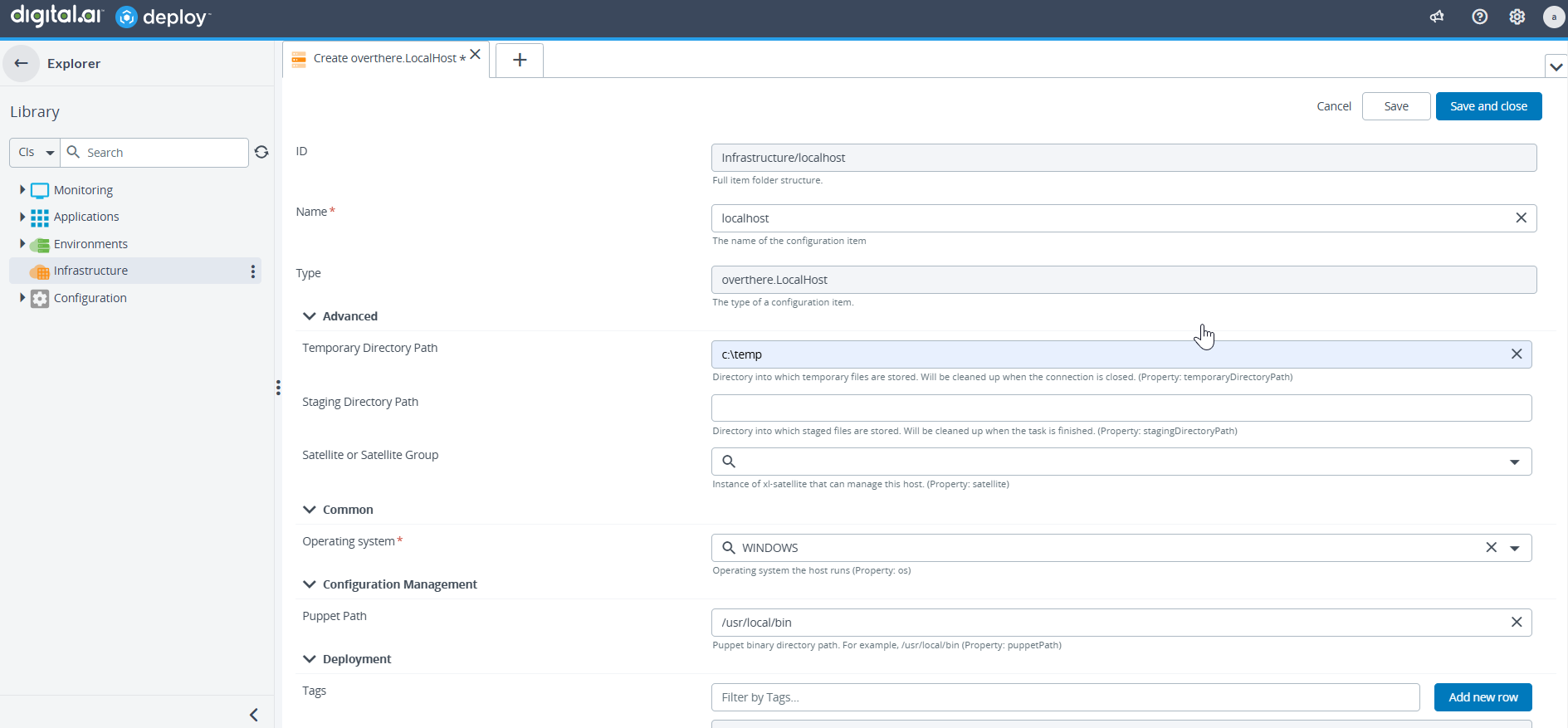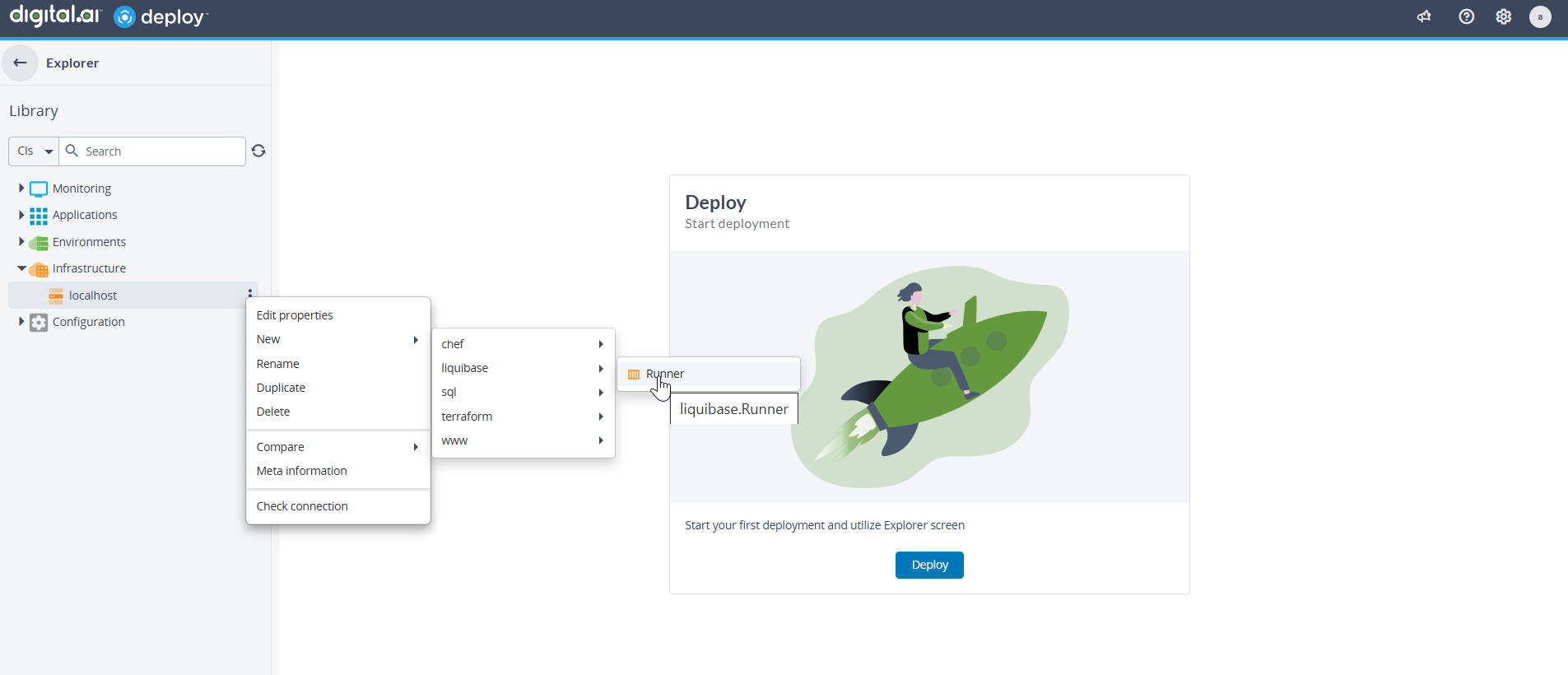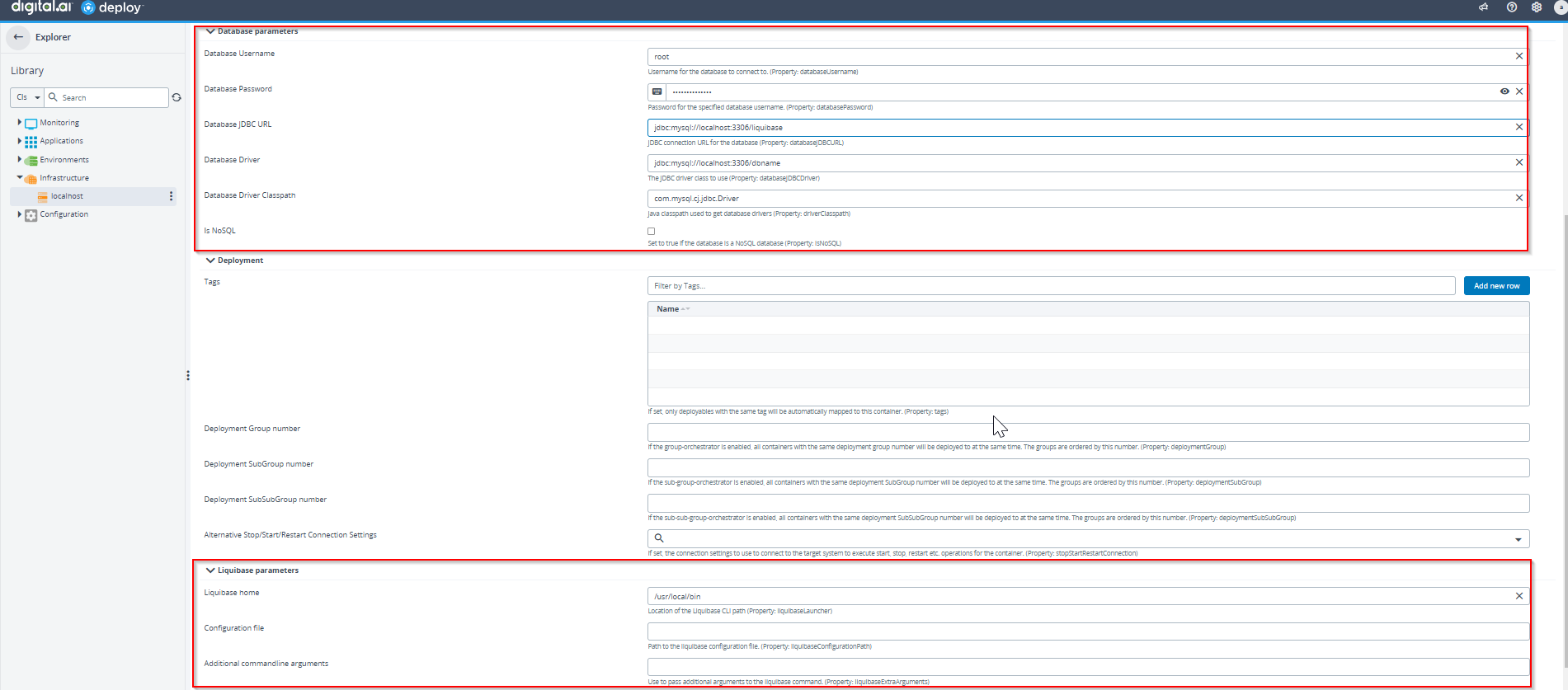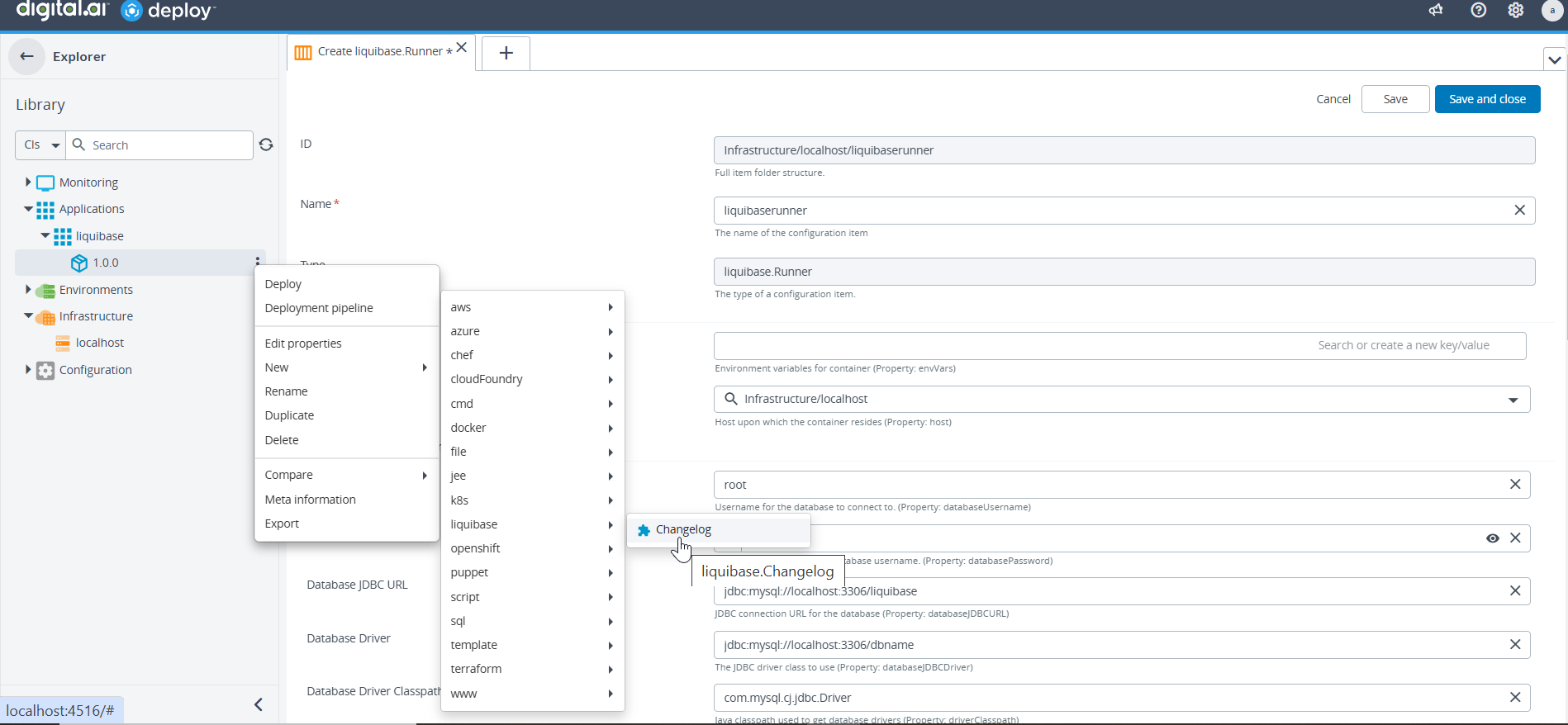Liquibase plugin
The Liquibase integration with Digital.ai Deploy helps simplify database schema management and automation. This plugin enables you to apply database updates, track schema changes, and perform rollbacks when needed.
Prerequisites
- Digital.ai Deploy 25.1.0 or later
- Database connectivity from Digital.ai Deploy server (see Configure the Database and Artifacts Repository)
- Required JDBC driver for your database
Installation
Install the plugin using the Plugin Manager.

Configuration
You must configure the Liquibase runner and set up the environment in Deploy.
Configure Liquibase Runner
-
Navigate to Infrastructure > New > Overthere > LocalHost

-
After creating localhost, select New > liquibase > Runner

-
Configure Database Parameters:

- Database Username: Database user
- Database Password: User password
- Database JDBC URL: Connection string (e.g.,
jdbc:mysql://localhost:3306/dbname) - Database Driver: JDBC driver class (e.g.,
com.mysql.cj.jdbc.Driver) - Database Driver Classpath: Path to JDBC driver JAR
- Is NoSQL: Enable for NoSQL databases
-
Configure Liquibase Parameters:
- Liquibase Home: Installation directory (e.g.,
C:\Liquibase) - Configuration File: (Optional) Properties file path
- Additional Command-Line Arguments: Extra parameters (e.g.,
--logLevel=debug)
- Liquibase Home: Installation directory (e.g.,
-
Test connection using Check connection
Create Environment
Create an environment for deploying database changes.
Deployment Process
Create the application package and deploy the package to roll out the changes.
Create Application Package
-
Create Application:
- Navigate to Applications > New > Application
- Provide application details
-
Create Deployment Package:
- Within application, select New > Deployment Package
- Add changelog under package: New > liquibase > changelog

-
Configure Changelog:
- Changelog File: Path to changesets file
- Rollback Version: Target version for rollbacks (e.g., v1)
- Rollback Version Prefix: Version tag prefix
Deploy Changes
- Select deployment package > Deploy
- Follow deployment wizard to apply changes
The plugin will apply database updates and create rollback tags automatically. For rollback information, see Rollback a deployment.